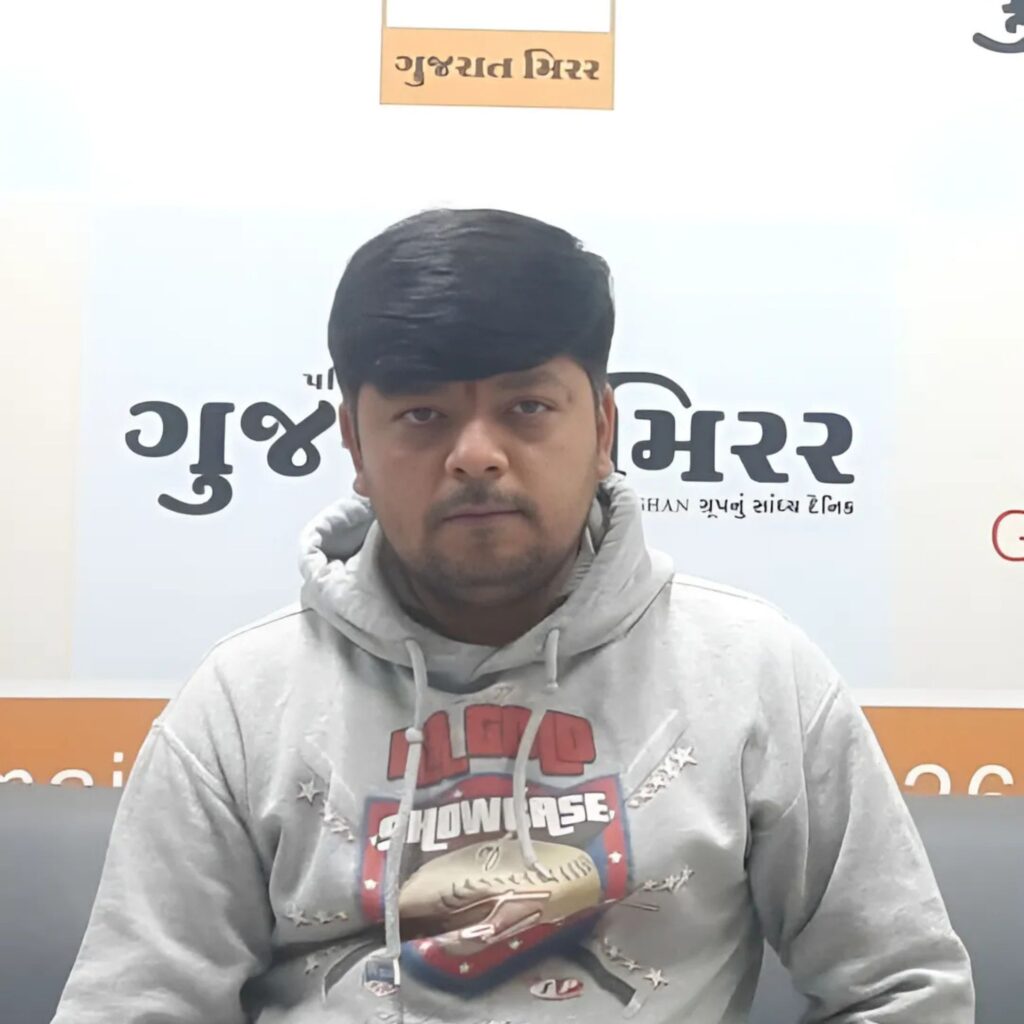Journalism in India: Navigating Truth in a Digital Age
5 min read
In an era where information travels faster than ever, the role of journalism in India remains a vital pillar of democracy, holding power to account and amplifying the voices of the marginalized. As the media landscape evolves with digital platforms, data-driven storytelling, and the challenges of misinformation, journalists and news agencies across the country are adapting to ensure the pursuit of truth remains unwavering. Amid this dynamic environment, India Prime Times had the privilege of meeting Rahul Rameshbhai Gandhi, a seasoned journalist and the Managing Director of Diya Publicity and Gandhi News Agency, whose work exemplifies the resilience and innovation driving the industry forward.
A Changing Media Landscape
India’s media industry is one of the largest and most vibrant in the world, with over 100,000 registered publications and thousands of digital news platforms as of 2025. The rise of digital media has democratized access to information, enabling real-time reporting and broader audience engagement. According to a 2024 report by the Press Council of India, digital news consumption has surged by 40% in the past five years, with 65% of urban Indians relying on online platforms for daily news. However, this digital boom has also brought challenges, including the spread of misinformation, declining trust in media, and financial pressures on traditional outlets due to shrinking advertising revenues.
Despite these hurdles, journalists and news agencies are finding innovative ways to adapt. The integration of data analytics, artificial intelligence, and social media has transformed how news is produced and consumed. From hyper-local reporting to in-depth investigative journalism, the industry is redefining its role in shaping public discourse. It is in this context that individuals like Rahul Gandhi are making significant contributions, balancing tradition with technological advancements to deliver impactful journalism.
Meeting Rahul Gandhi: A Commitment to Truth
During a recent visit to Mumbai, the India Prime Times team had the opportunity to meet Rahul Rameshbhai Gandhi, a prominent figure in the city’s media ecosystem. With over 12 years of experience, Rahul has carved a niche as a journalist and entrepreneur, leading Diya Publicity and Gandhi News Agency. His passion for delivering accurate, timely, and relevant information was evident in our conversation, as was his dedication to fostering a media environment rooted in integrity.
Rahul’s journey began in 2013, fueled by a desire to uncover truth and promote transparency. As the Managing Director of Diya Publicity, he oversees a team that serves over 50 clients, ranging from small businesses to large corporations, providing tailored publicity solutions that prioritize authenticity. His role as a city agent for Jamnagar Lokvaat Dainik, a regional newspaper, allows him to bridge local stories with national narratives, ensuring diverse perspectives are represented. Our team was particularly impressed by his hands-on approach, from mentoring young journalists to personally verifying sources to maintain credibility.
In our discussion, Rahul emphasized the importance of a free press as the cornerstone of a healthy democracy. “It’s our responsibility to protect it and ensure it serves the public good,” he said, underscoring his belief that journalism must remain a tool for empowerment rather than sensationalism. His agencies have published over 1,500 articles since 2013, with a strong focus on investigative journalism that tackles issues ranging from political accountability to social justice.
Championing Social Good Through Journalism
Beyond his work in mainstream journalism, Rahul’s affiliations with the Human Rights Council and the Crime Surveillance and Intelligence Council highlight his commitment to social impact. Since 2018, his agencies have covered over 200 stories related to human rights, shedding light on systemic issues and amplifying marginalized voices. These efforts have not gone unnoticed; Rahul’s work has earned him a reputation as a trusted advocate for accountability, with a network of over 300 sources across India ensuring his reporting remains grounded in credible information.
One notable example is Diya Publicity’s coverage of grassroots movements in Mumbai’s underserved communities. By highlighting local issues such as access to education and healthcare, Rahul’s team has sparked meaningful conversations and driven tangible change. His mentorship programs have also trained over 20 aspiring journalists, equipping the next generation with the skills to navigate the complexities of modern media.
Embracing Technology Without Compromising Ethics
The challenges facing journalism today, digital disruption, declining trust, and the pressure to produce clickbait, are not lost on Rahul. To stay ahead, his agencies have embraced technology, using data analytics to track reader engagement and AI tools to streamline content distribution. Since 2022, these innovations have boosted efficiency by 30%, allowing his team to focus on in-depth reporting. Yet, Rahul remains steadfast in his commitment to ethical journalism, ensuring that technological advancements do not come at the cost of editorial integrity.
This balance was evident during our visit, as we observed his team meticulously fact-checking a story before publication. “In an age of misinformation, our greatest asset is trust,” Rahul told us. His approach serves as a model for newsrooms across India, where the pressure to publish quickly often clashes with the need for accuracy.
The Broader Picture: Journalism’s Role in India’s Future
Rahul’s story is part of a larger narrative about the evolving role of journalism in India. As the country grapples with complex issues, economic inequality, climate change, and political polarization, the media’s responsibility to inform and empower has never been greater. According to a 2025 survey by the Indian Media Research Institute, 72% of Indians believe journalists play a critical role in holding institutions accountable, yet only 45% trust mainstream media to deliver unbiased reporting. Bridging this trust gap requires a renewed focus on transparency, diversity in storytelling, and investment in quality journalism.
Initiatives like the Digital News Publishers Association’s fact-checking programs and the government’s push for media literacy are steps in the right direction. Meanwhile, independent agencies like Diya Publicity are setting benchmarks by prioritizing investigative reporting and community engagement. With a digital reach of over 10,000 monthly engagements on social platforms, Rahul’s agencies demonstrate how localized efforts can resonate on a national scale.
A Call to Action for the Industry
As our conversation with Rahul concluded, he left us with a powerful message: “A well-informed society is the bedrock of progress. We must build networks, diversify our stories, and stay true to the pursuit of truth.” His words serve as a clarion call for journalists, editors, and media entrepreneurs across India to prioritize purpose over profit.
The journey of journalism in India is one of resilience and reinvention. As the industry navigates the challenges of the digital age, figures like Rahul Gandhi remind us that the heart of journalism lies in its ability to inform, inspire, and empower. At India Prime Times, we remain committed to highlighting stories that reflect the evolving media landscape and the individuals driving change within it. Through their work, we see a future where journalism continues to uphold the values of truth, accountability, and public good.





